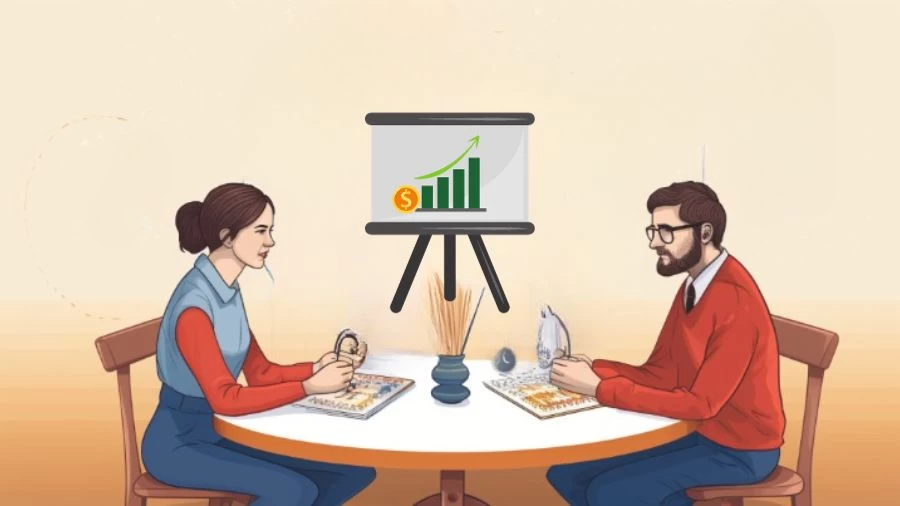
Quiz Questions On Economics and Personal Finance
Test your knowledge with engaging quiz questions on economics and personal finance. Find answers to intriguing questions and enhance your understanding of these vital subjects.
by Kowsalya
Updated Nov 08, 2023
On This Page
- How Does Inflation Influence Purchasing Power?
- Suppose the CPI Market Basket Cost $800 During the Base Period and $1,800 Today. What is the CPI for Today?
- Nathan Has Been Unable To Trust Banks Since The Failure Of His Savings And Loan Bank. He Claims That Storing His Hard-Earned Money At Home Is Costless. Is Nathan Correct?
- Why is the Core Inflation Rate Calculated Separately From the Inflation Rate?
- Today’s Savings Accounts Typically Offer Interest Rates Below 1%. How Does This Impact the Power of Compounding?
- Imagine That the Interest Rate on Your Savings Account is 1% Per Year and Inflation is 2% Per Year. After 1 Year, Would You Be Able to Buy More Than Today, Exactly the Same as Today, or Less Than Today With the Money in This Account?
- What is a Quick Way to Determine Which Savings Account Will Pay the Most Interest?
- How Does the Age at Which a Person Starts Saving Impact the Amount They Can Earn in Compound Interest?
How Does Inflation Influence Purchasing Power?
Answer: Inflation influences purchasing power by reducing the value of a currency. Purchasing power represents the amount of goods or services one unit of money can buy. When inflation occurs and prices rise, the same amount of money can purchase fewer goods or services, effectively diminishing the purchasing power of the currency.
Suppose the CPI Market Basket Cost $800 During the Base Period and $1,800 Today. What is the CPI for Today?
Answer:
To calculate the Consumer Price Index (CPI), you can use the formula:
CPI = (Cost of the basket in the current year / Cost of the basket in the base year) x 100
In your example:
Cost of the basket in the current year = 1800
Cost of the basket in the base year = 800
Now, plug these values into the formula:
CPI = (1800 / 800) x 100
CPI = (2.25) x 100
CPI = 225
So, the Consumer Price Index (CPI) is 225 in this case.
Nathan Has Been Unable To Trust Banks Since The Failure Of His Savings And Loan Bank. He Claims That Storing His Hard-Earned Money At Home Is Costless. Is Nathan Correct?
Answer: Nathan's contention is wrong.
Explanation: No, Nathan is not correct. Storing money at home has costs. It involves an opportunity cost in terms of foregone investment or interest income, and it's also risky due to the potential for theft or loss. Additionally, money stored at home doesn't contribute to the economy's circulation, so it yields no return.
Why is the Core Inflation Rate Calculated Separately From the Inflation Rate?
Answer: The core inflation rate is calculated separately to exclude volatile factors, like food and energy prices, and provide a more stable measure of underlying inflation trends over the long term.
Today’s Savings Accounts Typically Offer Interest Rates Below 1%. How Does This Impact the Power of Compounding?
Answer: Low interest rates below 1% reduce the potential for substantial compound interest growth over time.
Imagine That the Interest Rate on Your Savings Account is 1% Per Year and Inflation is 2% Per Year. After 1 Year, Would You Be Able to Buy More Than Today, Exactly the Same as Today, or Less Than Today With the Money in This Account?
Answer: Less
Explanation: After one year, you would be able to buy less than today with the money in the account. This is because the interest earned at 1% would not keep pace with the inflation rate of 2%, resulting in a decrease in the purchasing power of your savings.
What is a Quick Way to Determine Which Savings Account Will Pay the Most Interest?
Answer: A quick way to determine the most lucrative savings account is by consulting online financial sites like NerdWallet or Bankrate. Compare accounts based on their Annual Percentage Yield (APY), which represents interest rates minus fees. Choose an account with an APY higher than the national average for a better return on savings.
How Does the Age at Which a Person Starts Saving Impact the Amount They Can Earn in Compound Interest?
Answer: The age at which a person starts saving significantly impacts the amount they can earn in compound interest. Starting at a young age allows more time for compounding to work, resulting in substantial returns, even with small initial investments. Compound interest leads to higher wealth accumulation with a longer investment horizon, such as up to five years.




